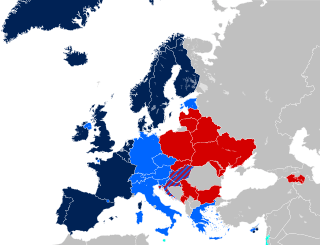Recognition of same-sex unions in Liechtenstein

Liechtenstein has recognized registered partnerships since 1 September 2011.
History
Legislative process
On 19 November 2001, MP Paul Vogt (Free List) submitted a registered partnership initiative to the Landtag, which after long discussion referred it to the government for its opinion. The goal of reducing discrimination was undisputed; rather the kind of recognition and the timing compared to neighbouring countries were cause for discussion. On 15 April 2003, the government published its position on the matter; it compared the legal situation in Liechtenstein with European countries with recognition of same-sex couples (e.g. Germany had recently introduced registered partnerships), but also with neighbouring Austria and Switzerland, which had no legal recognition of same-sex couples at the time. As the government saw no urgent need and preferred to await developments in Austria and especially Switzerland, it recommended rejection.[1] On 14 May 2003, the Landtag discussed and rejected the initiative.
On 1 January 2007, registered partnerships in Switzerland took effect following approval by referendum on 5 June 2005.
On 17 September 2007, Amnesty International Liechtenstein submitted a petition calling for legal recognition of same-sex couples. A subsequent motion put forward in the Landtag by the Free List party requesting that the government introduce a registered partnership law similar to Switzerland's passed on 24 October 2007 with 19 representatives voting in favour and 6 voting against.[2][3]
In December 2009, the Minister of Justice Aurelia Frick announced that she would present draft of the registered partnership bill in January 2010.[4][5] The draft was presented in April 2010.[6][7][8] After the consulation period for the bill finished on 16 July, a few items were amended as a result of the discussion.
The registered partnership bill (Lebenspartnerschaftsgesetz) has been described as very similar to the Austrian law passed in the autumn of 2009.[9] In August 2010, the Prince regent, Alois declared his support for the bill.[10] On 23 November 2010, the Government formulated the final version of the bill,[11][12] which was approved by Parliament in the first reading on 16 December 2010.[13] It was passed in the second reading on 16 March 2011 and published on 21 March that same year.[14][15]
Referendum
A group called Vox Populi (Voice of the People) announced its intention to force a referendum on the matter.[16][17] According to the Constitution, the organization had until 21 April[18] (30 days) to collect at least 1000 signaturies.[19] As the necessary signatures were gathered (1208 valid signatures), a referendum was held between 17 and 19 June 2011.[20][21] The registered partnership law was approved by 68.8 percent of those who voted and thus went into effect on 1 September 2011.[22]
Family name
As of 2016, the government of Liechtenstein is reforming family name law. Registered partners will now be allowed to have a common family name; however, it will be called simply "name" as opposed to "family name" for married couples, thus keeping a distinction. The reform was discussed in the Landtag on 4 March 2016 in first reading, and was approved in second and final reading on 31 August 2016.[23][24][25][26] It was published in the official gazette on 3 November 2016 and will take effect on 1 January 2017.[27]
Statistics
Eleven registered partnerships were performed in the first two years, following the entry into force of the law.[28]
See also
References
- ↑ "Stellungnahme der Regierung an den Landtag des Fürstentums Liechtenstein zur formulierten Initiative vom 19. November 2001 über die registrierte Partnerschaft und zur Abänderung des Ehegesetzes". Government of Liechtenstein. 15 April 2003.
- ↑ "Marriage and partnership rights for same-sex partners: country-by-country". Archived from the original on 2008-04-20.
- ↑ (German) Motion
- ↑ (German) Liechtensteiner Parlament soll im Sommer über Homo-Ehe debattieren
- ↑ (German) Liechtenstein: Homo-Ehe kommt nächstes Jahr
- ↑ (German) Vernehmlassungsbericht der Regierung betreffend die Schaffung eines Gesetzes über die eingetragene Lebenspartnerschaft gleichgeschlechtlicher Paare (LEBENSPARTNERSCHAFTSGESETZ; LPARTG) sowie die Abänderung weiterer Gesetze
- ↑ (German) Liechtenstein macht den Weg frei für homosexuelle Partnerschaften
- ↑ (German) Liechtenstein will Homo-Ehe erlauben
- ↑ (German) In Liechtenstein endete am Freitag die Beratungsfrist für eine Einführung der Eingetragenen Lebenspartnerachaft
- ↑ (German) Erbprinz für eingetragene Partnerschaft
- ↑ (German) Partnerschaftsgesetz verabschiedet
- ↑ (German) Partnerschaftsgesetz verabschiedet
- ↑ (German) Homo-Partnerschaft kommt voran
- ↑ (German) Ja zur eingetragenen Partnerschaft
- ↑ (German) Landtag einhellig für Partnerschaftsgesetz
- ↑ (German) VOX POPULI
- ↑ (German) Partnerschaftsgesetz: Doch noch Widerstand
- ↑ (German) Liebe ist ein Menschenrecht
- ↑ Constitution of the Principality of Liechtenstein
- ↑ (German) Partnerschaftsgesetz: Volk entscheidet Mitte Juni
- ↑ (German) Liechtensteiner stimmen im Juni über Homo- Ehe ab
- ↑ "68,8 % Ja-Stimmen für Partnerschaftsgesetz". Liechtensteiner Volksblatt (in German). 19 June 2011. Retrieved 19 June 2011.
- ↑ "Ist der «Familienname» heutzutage überholt?". Volksblatt. 4 March 2016.
- ↑ "Kein «Familienname» für eingetragene Paare". Volksblatt. 10 July 2016.
- ↑ "Namensrechtsreform bereit für zweite Landtagslesung". Volksblatt. 6 July 2016.
- ↑ "Reform des Namensrechts eingetragener Partner (Nr. 14/2016) [1. Lesung: 4. März 2016] - Stellungnahme der Regierung (Nr. 80/2016); 2. Lesung" (in German). Landtag of Liechtenstein. Retrieved 6 November 2016.
- ↑ Gesetz vom 31. August 2016 über die Abänderung des Partnerschaftsgesetzes
- ↑ (German) Elf eingetragene Partnerschaften in Vaduz geschlossen